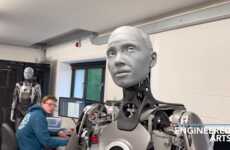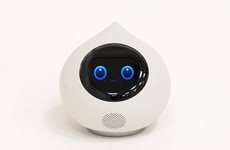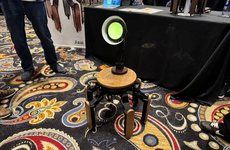
Alderbaran Created the World's First Emo Robot
Megan Facciuolo — June 12, 2014 — Tech
An emo robot was recently created as a result of the collaboration between Japan-based mobile carrier SoftBank and France-based robot maker Alderbaran. The humanoid robot named Pepper is said to be "the first robot to read human emotions."
Instead of spitting out a series or phrases and words, the robot actually understands what any one says to it and is extremely affectionate. With that in mind, the creators believe that Pepper will change our lives with the same magnitude that the Internet and mobile phones did.
The two companies are working together to get Pepper to store shelves in Japan by February 2015. However, the cute robot will surely make its way around the world considering it was made to understand 17 different languages.
Instead of spitting out a series or phrases and words, the robot actually understands what any one says to it and is extremely affectionate. With that in mind, the creators believe that Pepper will change our lives with the same magnitude that the Internet and mobile phones did.
The two companies are working together to get Pepper to store shelves in Japan by February 2015. However, the cute robot will surely make its way around the world considering it was made to understand 17 different languages.
Trend Themes
1. Emotional-AI - Emotional AI is disrupting the robotics industry, creating opportunities for robot-makers to create more human-like interactions that can enhance the empathy and companionship factor in robots.
2. Interactive Robots - Interactive robots are a growing trend as humans seek more engaging and emotional interactions with machines, with many potential uses in industries such as hospitality and healthcare.
3. Multi-lingual Robotics - Multi-lingual robotics is a trend that has emerged with Pepper's ability to understand and interact in 17 different languages, providing opportunity for the development of robots capable of providing language services and support across regions and industries such as tourism.
Industry Implications
1. Healthcare - Emotional humanoid robots can provide assistance to healthcare professionals in performing tasks and monitoring patient progress, enhancing personalized care and companionship for patients.
2. Hospitality - Hotels can leverage emotional robots to engage guests on an emotional level, providing personalized recommendations, room service and entertainment as a value-added service.
3. Language Services - Multi-lingual robots can disrupt the travel and tourism industry, serving as tour guides or language interpreters and enhancing the customer's experience across cultures.
4.4
Score
Popularity
Activity
Freshness























